Basque language and culture
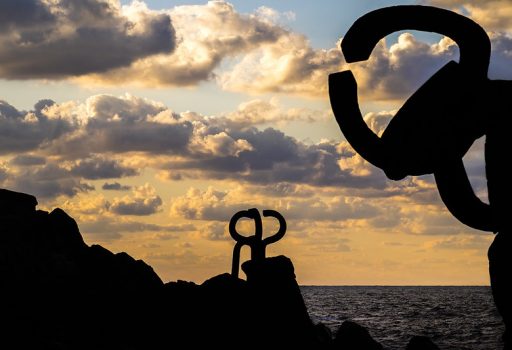
In order to get to know any corner of the world in depth, it is necessary to know its language and culture, which are what make it unique.
In this sense, the Basque Country is a region that stands out not only for its landscapes, but also for its unique cultural identity in Spain.
At the heart of this culture is the Basque language, which is thousands of years old, and a series of deep-rooted traditions that are expressed through sport, dance, music and cinema.
We invite you to join us on a journey through the essence of Basque culture.
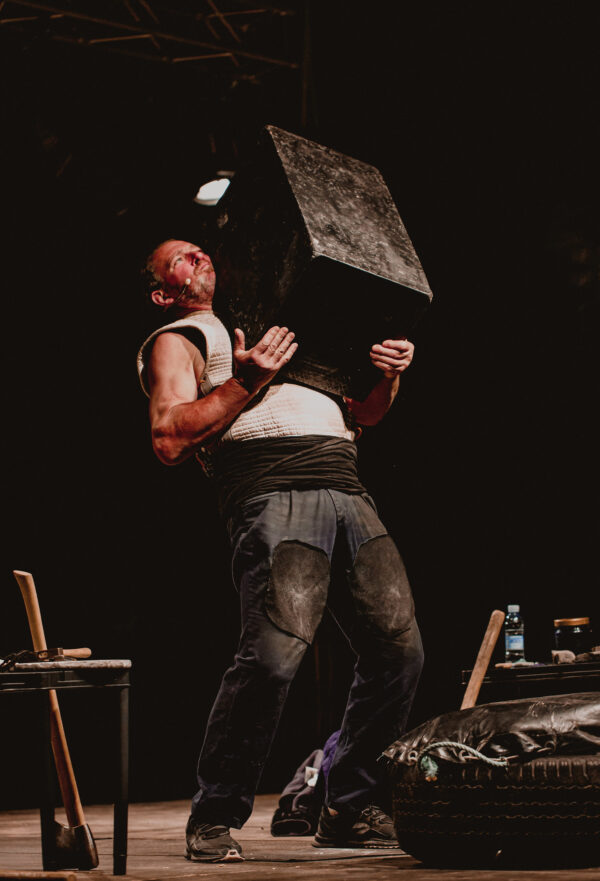
Iñaki Perurena, the best known harrijasotzaile (stone lifter).
Basque language
Euskera, also known as Basque or Basque language, is one of the oldest and most mysterious languages in Europe. The most fascinating thing about this language is that it is unrelated to any other known language, which makes it a cultural treasure and a symbol of the resilience of the Basque people.
The Basque language is still present in the daily life of its towns and villages, and more and more people are learning it, helping to keep alive this legacy, the origin of which is still unknown.
In San Sebastian, listening to Basque language in the streets, bars and markets is a reflection of authentic Basque life. For Basques, the language is not only a means of communication, but also a way of expressing their identity and connection with their homeland.
Sport
Sport in the Basque Country is a tribute to strength and connection to the land.
Although football has a strong following, with teams such as Real Sociedad playing in the elite, traditional sports or ‘herri kirolak’ remain an important part of local festivities.
Disciplines such as Basque handball, stone-lifting (harrijasotzea), log-cutting (aizkolaritza) or ox-dragging (idi probak) are not just sporting competitions, but a way of paying homage to the region’s ancient rural activities.
During your visit to San Sebastian, don’t miss the chance to see one of these shows, where tradition and emotion come together to offer you a unique experience. There are two times of the year when you will be able to enjoy these sports for sure: the Basque festival (Euskal Jaiak) held in September or during the Semana Grande (Aste Nagusia) in August.
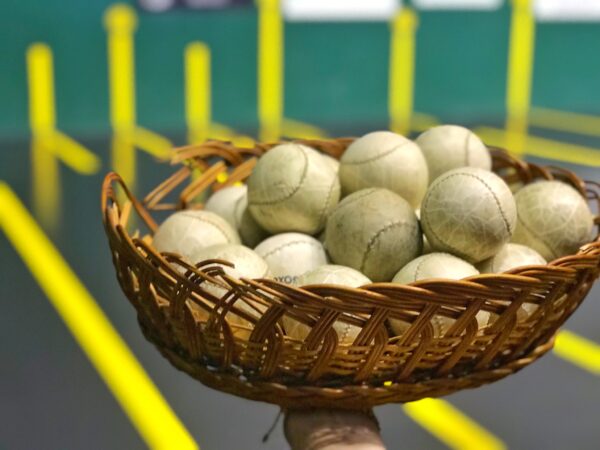
Leather balls for handball.
Dances
Basque dances, known as dantzak, are an essential part of Basque culture. Among them is the aurresku, a solemn and respectful dance performed at important ceremonies and celebrations.
This dance, accompanied by the txistu and tambourine, symbolises Basque honour and identity, and is especially moving when performed at weddings, tributes, inaugurations, or institutional events, among other celebrations.
Another popular dance is the ezpatadantza (sword dance), which is performed by dancers carrying swords and shields, in choreographies that date back to ancient times.
These dances not only reflect the history of the Basque Country, but are still alive in local festivities, connecting the past with the present, as they reflect part of the life of the Basques of the past.
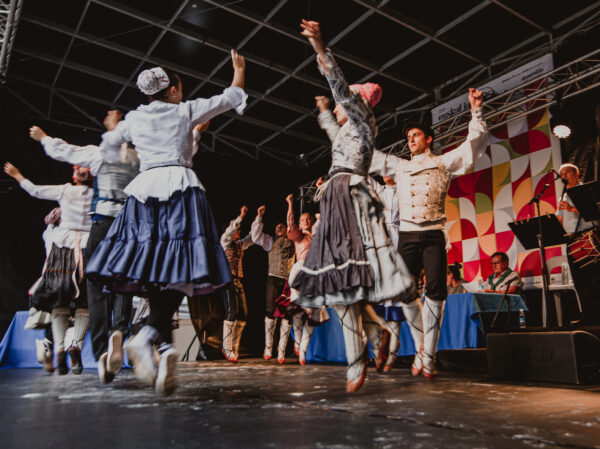
Group of dantzaris (dancers).
Music
Music in the Basque Country is a fascinating blend of tradition and modernity. Traditional instruments such as the trikitixa (diatonic accordion) and the alboka (wind instrument) are still essential to Basque festivals and events.
But Basque music is not just about tradition; the contemporary music scene in San Sebastian is full of artists who fuse styles and sounds, from folk to rock.
Festivals such as the Jazzaldia in San Sebastian or the Quincena Musical (held in the summer months) are a sign of how music is part of the soul of this region.
If you visit Donostia during these events, you can enjoy a variety of musical styles, all framed by the stunning beauty of the city.
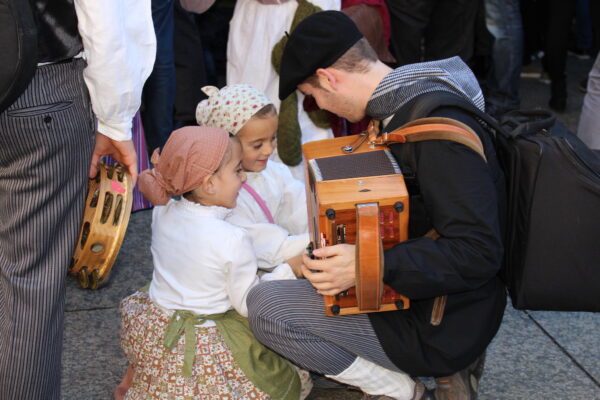
Trikitilari showing his trikitixa to some girls.
Cinema
Basque cinema also has a significant presence in local culture. San Sebastian is home to one of the most prestigious film festivals in the world, the San Sebastian International Film Festival. In fact, it is the most important film festival in the world at the Latin American level.
This annual event attracts filmmakers, actors and critics from all over the world, and is a showcase for both international cinema and Basque productions.
Basque cinema has grown in relevance, with films that address issues of identity, history and Basque society, projecting its culture to the world. If you are a film lover, this festival is an excellent opportunity to get to know the region’s cinematographic wealth.
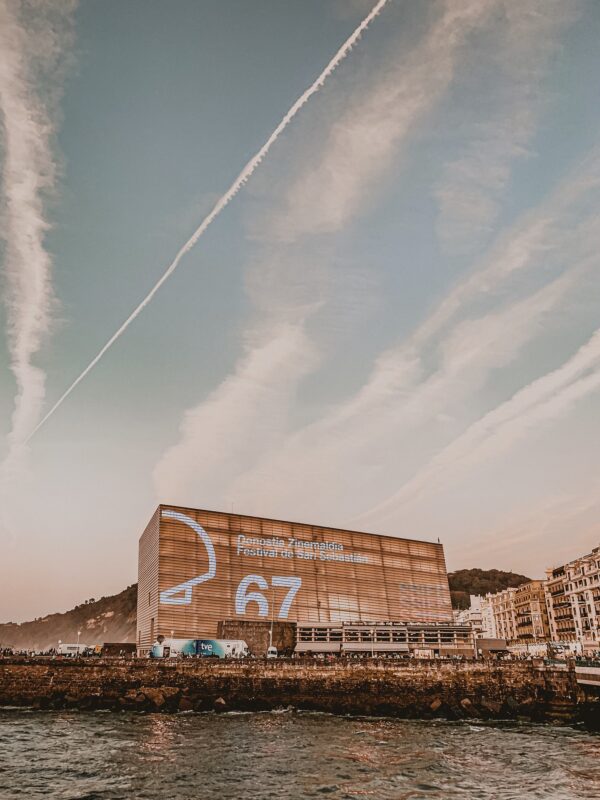
The Kursaal decked out for the film festival.
Discover the richness of Basque culture with Go Local
Basque culture is alive in every corner of the Basque Country, and San Sebastian is the perfect starting point to immerse yourself in it.
Whether through its language, sports, dance, music or cinema, this region offers an authentic cultural experience that goes far beyond the superficial.
Come and discover the essence of the Basque Country, a land where tradition and modernity meet to offer you something unique, and Go Local will be delighted to show you all its secrets.